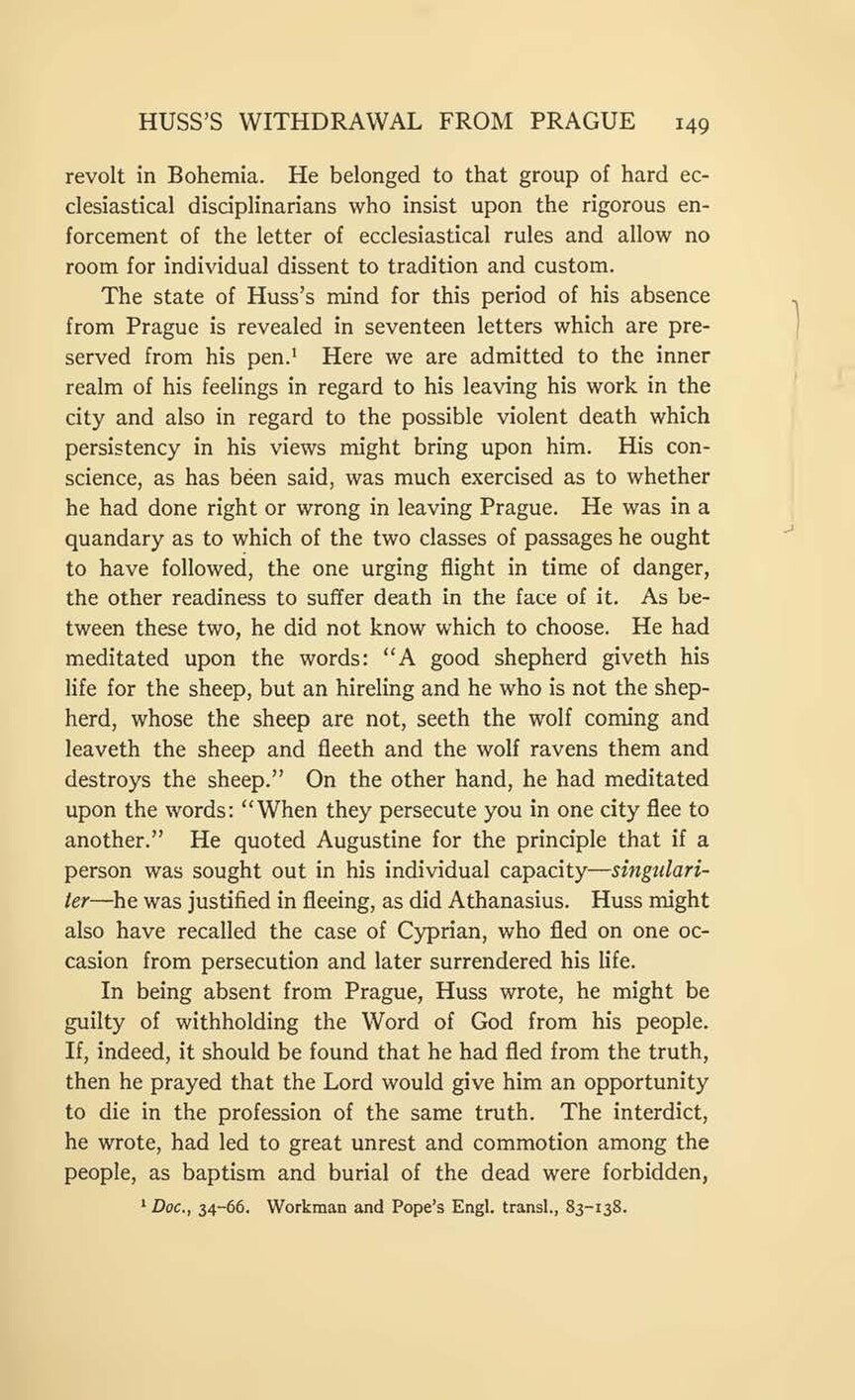revolt in Bohemia. He belonged to that group of hard ecclesiastical disciplinarians who insist upon the rigorous enforcement of the letter of ecclesiastical rules and allow no room for individual dissent to tradition and custom.
The state of Huss’s mind for this period of his absence from Prague is revealed in seventeen letters which are preserved from his pen.[1] Here we are admitted to the inner realm of his feelings in regard to his leaving his work in the city and also in regard to the possible violent death which persistency in his views might bring upon him. His conscience, as has been said, was much exercised as to whether he had done right or wrong in leaving Prague. He was in a quandary as to which of the two classes of passages he ought to have followed, the one urging flight in time of danger, the other readiness to suffer death in the face of it. As between these two, he did not know which to choose. He had meditated upon the words: “A good shepherd giveth his life for the sheep, but an hireling and he who is not the shepherd, whose the sheep are not, seeth the wolf coming and leaveth the sheep and fleeth and the wolf ravens them and destroys the sheep.” On the other hand, he had meditated upon the words: “When they persecute you in one city flee to another.” He quoted Augustine for the principle that if a person was sought out in his individual capacity—singulariter—he was justified in fleeing, as did Athanasius. Huss might also have recalled the case of Cyprian, who fled on one occasion from persecution and later surrendered his life.
In being absent from Prague, Huss wrote, he might be guilty of withholding the Word of God from his people. If, indeed, it should be found that he had fled from the truth, then he prayed that the Lord would give him an opportunity to die in the profession of the same truth. The interdict, he wrote, had led to great unrest and commotion among the people, as baptism and burial of the dead were forbidden,
- ↑ Doc., 34–66. Workman and Pope’s Engl, transl., 83–138.
